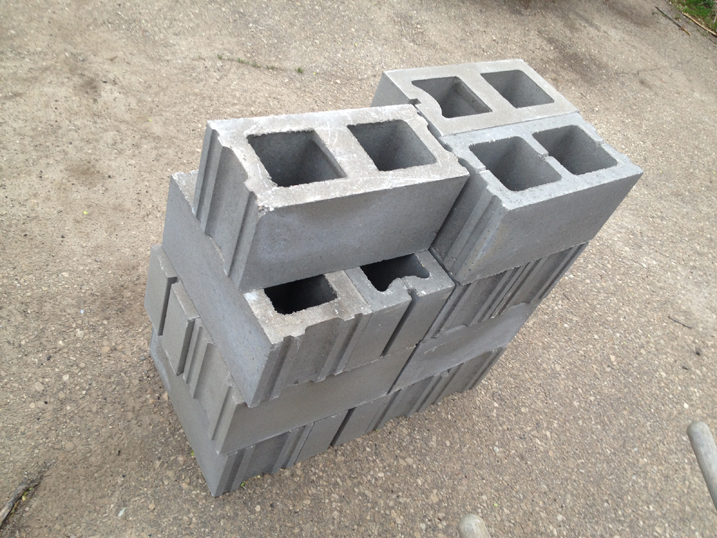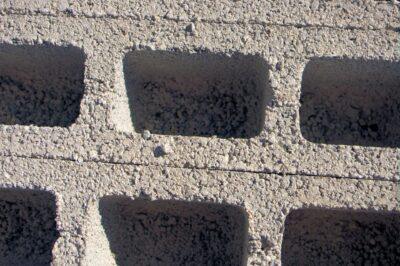Are Cement Blocks Safe For Gardens

Image source: Rustoleum.com
Planning to add some raised beds to your homestead this year? Raised beds are excellent for those who need more compact gardens or those who have back or knee pain, as they eliminate the necessity of bending down to weed the rows.
Natural rock can be used to create raised beds. Think of the stone fences frequently seen throughout the countryside. Most of these barriers were constructed out of rocks gathered from the adjacent fields. Although you may not be able to gather enough rocks from your homestead alone, visiting with a local building contractor may allow you the opportunity to glean rocks from new construction sites for the amount needed for your project.
Of course, raised gardens also can be constructed out of lumber. Cedar is a popular choice, since it is resistant to wood rot and deters termites. Avoid using treated lumber of any kind. Treated lumber can harbor toxic chemicals that will leach into the soil, contaminating both the soil and plants grown in the affected soil. The same can be said for railroad ties and other scrap lumber of unknown origins.
In an effort to save time and money, many homesteaders have turned to using cinder blocks, new and reclaimed, to build raised beds on their property. Although cinder blocks are relatively easy to obtain, are simple to work with and last for years with very little maintenance, there are a few safety concerns that should be addressed.
Discover More Than 1,000 Off-Grid-Living Tricks!
First, you must determine if you are working with true cinder blocks or cement blocks, as there is a difference in their composition. Cement blocks are made with Portland cement and aggregates. They are heavier and costlier on average, while cinder blocks are made with Portland cement and fly ash, a byproduct of the coal industry, and they are lighter in weight and most often cheaper to purchase.
 The addition of fly ash to the Portland cement is the cause of concern. Fly ash is a byproduct of coal-burning electric plants. The ash is trapped and collected, then used as a partial substitute for Portland cement. While it is true that this process creates what is now considered a green building material, questions remain about how safe fly ash truly is. The coal itself contains many heavy metals and other substances known to be toxic. A considerable amount of these metals and substances remain in the ash and are subsequently found in the cinder blocks that are created from it.
The addition of fly ash to the Portland cement is the cause of concern. Fly ash is a byproduct of coal-burning electric plants. The ash is trapped and collected, then used as a partial substitute for Portland cement. While it is true that this process creates what is now considered a green building material, questions remain about how safe fly ash truly is. The coal itself contains many heavy metals and other substances known to be toxic. A considerable amount of these metals and substances remain in the ash and are subsequently found in the cinder blocks that are created from it.
Garden beds, framed with cinder block, may be fine for flowers and other nonedible plants, but be wary of using them to frame gardens that will be home to edible plants and medicinal herbs. There is the potential for toxic materials to leach from the cinder blocks into the soil. These materials have been known to affect cognitive ability, cause nervous disorders, contribute to increased cancer risks and have given rise to many general health complaints.
Produce Boiling Hot Water, Anywhere, Anytime With Absolutely No Power Whatsoever…
There are some ways to safeguard yourself and your raised beds if you are concerned about the increased health risks from using cinder blocks.
1. Plant only in the actual garden space created by the cinder blocks. Do not plant edibles in the hollow chambers of the blocks. The roots of these plants are completely surrounded by the block and may absorb the higher amounts of toxic material leached into the soil from the fly ash.
2. If building a new bed, seal the blocks with a waterproof sealant on all surfaces. This may lessen the amount of leaching that occurs over time from watering and natural rainfall.
3. For a few seasons, grow cleansing plants, such as sunflowers. Some species of plants clean the soil by removing toxic materials from the soil, or at the very least neutralize them. At the end of the growing season it is best to destroy the plants. Adding the contaminated plant to the compost pile will only spread the toxic materials to a new location.
Do you garden with cinder blocks? What advice would you add? Share it in the section below:
If You Like All-Natural Home Remedies, You Need To Read Everything That Hydrogen Peroxide Can Do. Find Out More Here.

Are Cement Blocks Safe For Gardens
Source: https://www.offthegridnews.com/alternative-health/the-toxic-truth-about-cinder-blocks-every-homesteader-should-know/
Posted by: crismanlair1941.blogspot.com

0 Response to "Are Cement Blocks Safe For Gardens"
Post a Comment